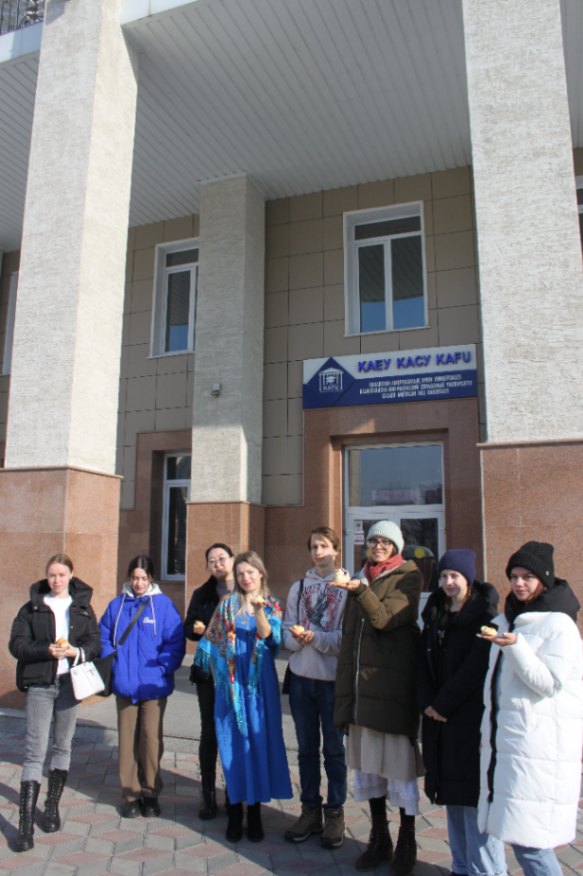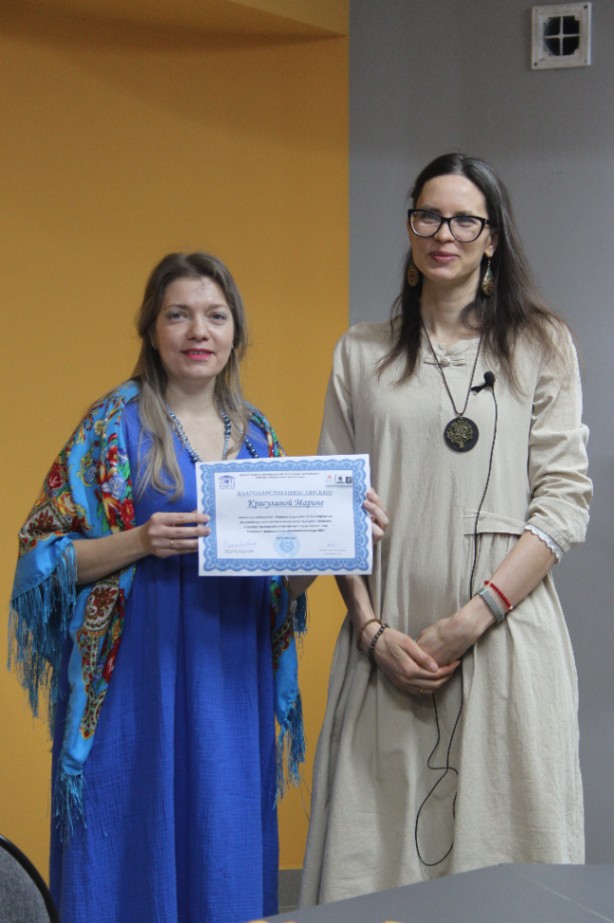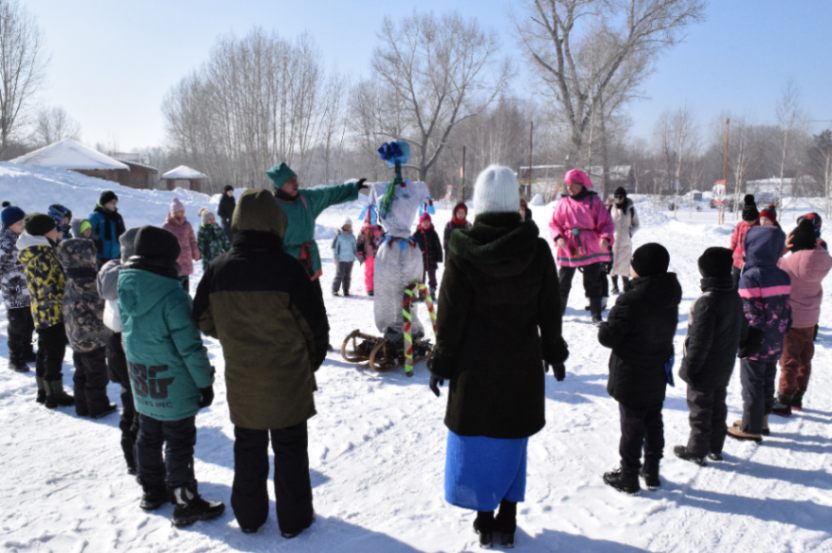Mastering the Traditional Ritual Culture of East Kazakhstan Region
At the Kazakh-American Free University, for first-year students of the educational programs “Russian Language and Literature” and “Journalism”, on the occasion of Gratitude Day, which is celebrated in Kazakhstan on March 1, a seminar “Mastering the Traditional Ritual Culture of East Kazakhstan Region” was held.
Lecturer at the Department of Pedagogy and Psychology, Lidiya A. Misevra, organized a meeting with a member of the Slavic community “Native Traditions”, Marina Krassulina, who shared her experience of living the New Year holidays, the wisdom of her ancestors, emphasizing that “in every ritual the voice of past generations is heard, and a return to nature is not only a tradition, but also a responsibility to future.” Marina donated to the university fund a calendar of Slavic holidays compiled by the “Native Traditions” community and wax candles in the form of deities of the Slavic pantheon.
Students had a unique opportunity to immerse themselves in the unusual atmosphere of celebrating the annual holidays of the Slavs, learned spring chants, and appeased spring with lark buns. Birds were symbols of the coming spring. Various rituals to call on spring were associated with the “larks” (“clicking” of spring).
“Knowledge and experience of contact with the ancient customs of the Slavs, which have pagan roots, open up new facets of our culture. It’s not just exciting, but also inspiring to see how people try to preserve traditions and pass them on,” the students share their impressions.
As a continuation of the seminar, KAFU students went to the Left Bank museum complex and took part in the reconstruction of the Maslenitsa holiday for students of Secondary school № 24. Here the Russian ethnography department talks about the local traditions of Maslenitsa Week. Students of philology within the discipline of “Russian Oral Folk Art”, thus study the experience and traditions of previous generations, immersing themselves in the most approximate conditions of their original existence. Folk games, round dances, slides, sleigh rides, tug of war, Maslenitsa songs and other fun activities are recorded by students for further study. The cultural identity of all ethnic groups of the Republic of Kazakhstan is important in promoting unity, solidarity and respect for national values.
Department of Pedagogy and Psychology








